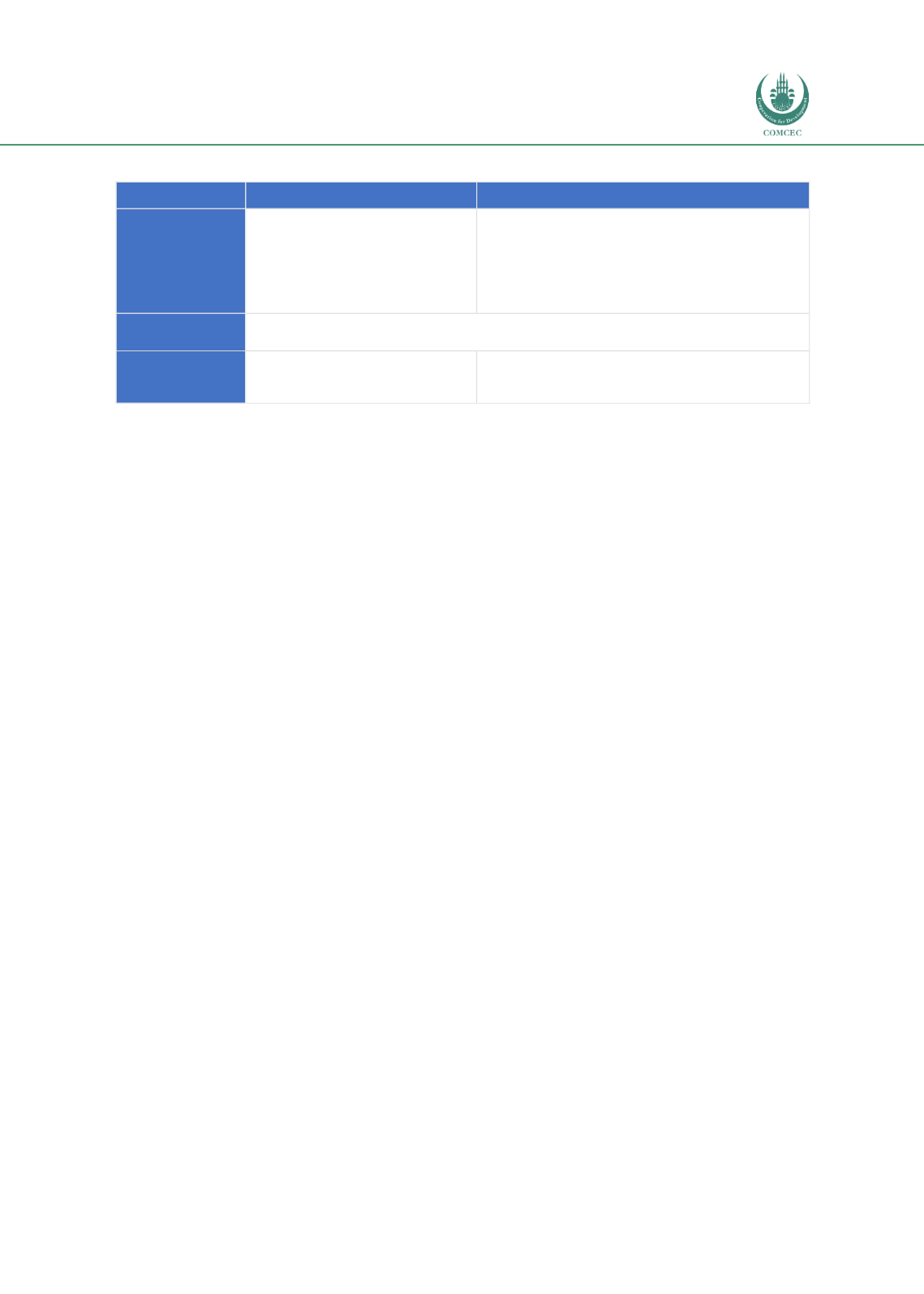

Islamic Fund Management
43
Table 3.1: Comparison between Conventional Unit Trust and Islamic Unit Trust
Type
Conventional Unit Trust
Islamic Unit Trust
Feature
A pooled investment plan, where
the capital contributions of
investors are combined into a
legally formed trust fund.
Depending on the type of Shariah contract
adopted, e.g. under a
mudarabah
structure,
investors are known as
rabb al-mal
and the fund
manager as
mudarib
. Investors participate in the
equal sharing of a collective investment scheme,
and share the profits and losses
Asset Manager
Invested and managed by professional fund managers, acting on behalf of the investors
in a portfolio of marketable securities.
Type of Stocks
All types of equities.
Restricted to Shariah-compliant stocks that are
screened based on Shariah screening
methodologies, e.g. AAOIFI, Dow Jones, MSCI, SC.
Source: RAM
Furthermore, an Islamic fund must establish a Shariah audit function, either by hiring an
external party or internally engaging a Shariah specialist, whose responsibility is to oversee
the Shariah compliance of the fund in consonance with the relevant regulations and Shariah
resolutions.
Shariah Stock Screening
For an investment fund to be Shariah-compliant, the stock of the company in question must be
screened to ensure that the potential investment is suitable under Islam. Under Shariah law,
ownership of shares in a company is considered a structured proportionate share of that
company's business and assets, with the result that Islamic investors cannot own a company
involved in any
haram
activity. Investors will seek guidance from the fund's Shariah board on
the permissibility of an investment or business venture.
To enhance Islamic investors’ access to the financial markets, a group of leading Shariah
scholars has developed a series of screening criteria aimed at identifying the Shariah non-
compliant elements of a company; they will devise means to avoid or deal with them in a
manner consistent with Shariah principles. Through this screening process, Shariah-compliant
investors can, therefore, invest in companies which fulfil such screening criteria. The screening
criteria is applied at the time of the investment decision and during the subsequent ongoing
monitoring process by the Shariah board, to ensure that the company remains Shariah-
compliant during the investment period.
There has been much debate on the interpretation and application of the screening criteria,
which will often vary on a case-by-case basis. However, there are two basic screening
processes which are applied to companies with the potential of forming part of an Islamic
investment portfolio.
Firstly, the
business screen
examines the underlying business of the company and aims to
eliminate any
haram
businesses that are contrary to the principles of Shariah. Such businesses
include conventional banking, insurance, alcohol, pork-related products, non-compliant food
products, gambling, certain tobacco products, pornography and weapons manufacturing. It is
not sufficient for the holding company alone to comply with the industry screen, all its
subsidiaries must also adhere to the same.
















